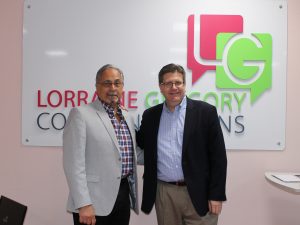 By Jamie Herzlich
By Jamie Herzlich
With more employees coming forward, there’s been an uptick in companies requesting guidance on how to handle potential claims, experts say.
The #MeToo movement has put sexual harassment in the forefront and made it easier for victims to speak out.
That makes it all the more important for employers to be prepared to handle harassment complaints from employees, say experts.
“You don’t want to wait until someone comes forward and then scramble,” says Deb Muller, CEO of Florham Park, New Jersey-based HR Acuity. “You should be sitting down with your leadership team and saying ‘How do we manage this?’ ”
Anecdotally, she says, she’s been hearing from employers about more sexual harassment incidents being reported internally in the workplace.
“This doesn’t necessarily mean more incidents are occurring, it just means more individuals are comfortable stepping forward,” says Muller.
Christine Malafi, a partner at Campolo, Middleton & McCormick in Ronkonkoma, has seen an uptick in the number of employers requesting guidance on handling potential claims of sexual harassment in the workplace and also looking to update their policies or do refresher training.
“The best defense is a good offense,” says Malafi.
While not all reports turn out to require disciplinary action or result in formal charges being filed, each one must be taken seriously.
“A lot of times it’s a misunderstanding of a situation that can be solved by having a conversation with a member of the company’s management team or human resources team,” says Jeff Agranoff, a principal at Jericho-based Grassi & Co., a CPA and business advisory firm.
“The most important thing you can do is listen and take notes,” says Muller, adding that you can even have an intake questionnaire or template ready.
Have a process and point person to whom employees can go to report complaints.
If someone reports an incident, ask the employee key questions: What happened? Who was involved? What was the impact of the incident (i.e., did you lose your job?).
You want the employee to feel comfortable coming forward; otherwise the person could end up taking the complaint elsewhere (i.e., to an attorney), Muller says.
“It’s a dangerous situation for a company to not follow a process and investigate it properly,” says Agranoff, noting this typically includes interviewing all people involved.
While conducting the investigation, it’s best to leave the employee in his or her current position unless a specific change is requested, he says.
“You have to make a reasonable accommodation to put the person in a more comfortable environment,” he says, noting if the the person is comfortable with the current situation “don’t change things just to change them.”
You don’t want someone negatively impacted because they made the complaint. In fact, your harassment/discrimination prevention policy should include a statement prohibiting retaliation.
In the same respect, employers should not be accusatory toward the person the complaint is lodged against while the investigation is ongoing, says Malafi.
Be as discreet as possible when investigating, she says. Perhaps even avoid using names when initially interviewing witnesses. For example, in a case where someone showed inappropriate pictures in the lunchroom, when interviewing employees you may just say there was a complaint that involved someone showing inappropriate pictures and see how they respond, says Malafi.
If an investigation results in valid claims on the part of the accuser, it’s the obligation of the employer to take remedial action to do its best to ensure the behavior doesn’t continue, says Pfadenhauer, author of “Workplace Investigations: Discrimination and Harassment” (Datamotion Publishing, $29).
Depending on the circumstances, this doesn’t always mean termination; it could mean restating your policy and making sure everyone’s clear on what’s appropriate and inappropriate conduct in the workplace, she says.
And then, says Pfadenhauer, “Management should periodically follow up to make sure the inappropriate behavior does not continue.”
Read it on Newsday.


 By Michael Smith, guest blogger
By Michael Smith, guest blogger


















 CMM partner
CMM partner 

 Headquartered in St. Louis, Missouri, Emerson Electric is a global technology and engineering company providing innovative solutions for customers in industrial, commercial, and residential markets. Learn more at
Headquartered in St. Louis, Missouri, Emerson Electric is a global technology and engineering company providing innovative solutions for customers in industrial, commercial, and residential markets. Learn more at 